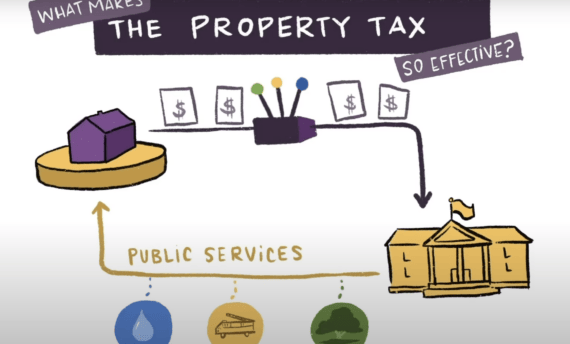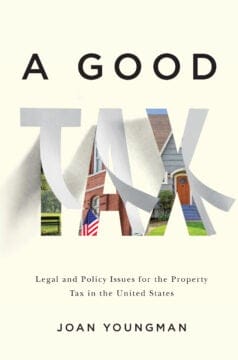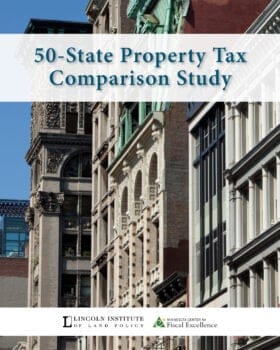Using land and property values to fund public investment and vital government services
Tax systems are the engine for public action, providing resources needed to promote and improve civic well-being. An efficient tax system raises revenue while minimizing unintended consequences, and an equitable tax system imposes obligations on taxpayers in proportion to their resources.
Our Work
Our work addresses three major land-related tax issues:
- Property taxation, a fair, stable, and efficient source of local revenue
- Land value taxation, an economically efficient method of identifying the social contribution to property wealth
- Valuation methods, the key to appraising the property tax base accurately and distributing tax obligations fairly
The property tax is the linchpin of municipal fiscal health:


Introduction to the Property Tax
The Lincoln Institute has developed a variety of resources designed to promote understanding of basic functions of the property tax and its importance as a revenue source for local government. Explainer videos explore the mechanics of how the property tax works and use real-life examples to demonstrate the significance of the property tax in government finance. Other resources discuss considerations for policymakers and clarify important aspects of property taxation.

Introduction to the Property Tax–School Funding Connection
Property taxation and school funding are closely linked in the United States. We have many resources designed to promote a basic understanding of the relationship between property taxation and public K–12 education funding.
Resources
Fiscally Standardized Cities
Compare local government finances for over 200 large US cities across 115 categories of revenues, expenditures, debt, and assets.
Significant Features of the Property Tax
Discover data on the property tax in all 50 US states and the District of Columbia.
State-by-State Property Tax at a Glance
Use this visualization tool to compare property tax systems and key variables across the 50 US states and the District of Columbia.
Standard on Property Tax Policy
As part of an International Association of Assessing Officers task force, the Lincoln Institute has contributed to the content and focus of the organization’s Standard on Property Tax Policy. Drawing upon many Lincoln Institute resources, the guidelines in this publication provide best practices to improve and advance property tax systems.
Vertical Equity App
A well-administered property tax system is an efficient and equitable way to pay for local public services, and accurate assessments are critical for property tax equity. The Vertical Equity App is designed to provide assessment offices with the capacity to measure and evaluate vertical equity in assessment rolls and to communicate the results effectively.
Value-Based Taxation in Eastern Europe
The Lincoln Institute built on its ongoing initiatives to strengthen the property tax in Southern and Eastern Europe through its educational work in Latvia, where a highly regarded and technically sophisticated mass appraisal system faces political challenges that are common to many regions around the world.

A Good Tax
Tax expert Joan Youngman skillfully considers how to improve the operation of the property tax and supply the information missing in public debate. The author analyzes the legal, administrative, and political challenges to the property tax in the United States and offers recommendations for its improvement. The book is accessibly written for policy analysts and public officials who are dealing with specific property tax issues and for those concerned with property tax issues in general.
Publications

Property Tax in Africa
Edited by Riël Franzsen and William McCluskey










